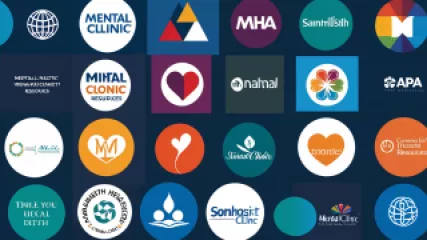Top 10 Mental Health Literacy Resources for Effective Coaching Services
Top 10 Mental Health Literacy Resources for Effective Coaching Services
Mental health literacy plays a crucial role in promoting well-being and providing effective coaching services. With the rise of online therapy sessions and the increasing demand for mental health support, it is essential for coaches to stay informed and equipped with reliable resources. In this article, we have curated a list of the top 10 mental health literacy resources that can enhance your coaching practice and help you better support your clients.
1. National Institute of Mental Health (NIMH)
The NIMH is a reputable source of information on various mental health topics. Their website offers comprehensive resources, including fact sheets, publications, and research updates. You can find valuable information on different mental health conditions, treatment options, and evidence-based practices. Their resources are user-friendly and provide insights into the latest advancements in the field of mental health.
2. Mayo Clinic
Mayo Clinic's website is known for its reliable medical information, including mental health-related topics. They offer in-depth articles, videos, and self-assessment tools that can help individuals gain a better understanding of mental health issues. Their resources cover a wide range of topics, from common mental disorders to coping strategies and self-care techniques.
3. American Psychological Association (APA)
The APA is a leading organization in the field of psychology, and their website is a valuable resource for both professionals and the general public. They provide access to research articles, guidelines, and information on evidence-based practices. The APA also offers resources specific to coaching and mental health, such as tips for effective communication, stress management techniques, and resilience-building strategies.
4. Mental Health America (MHA)
MHA is a non-profit organization dedicated to promoting mental health and well-being. Their website offers a range of resources, including screening tools, educational materials, and advocacy resources. MHA's resources are designed to empower individuals and help them take control of their mental health. They also provide valuable information on mental health conditions, treatment options, and recovery.
5. Centers for Disease Control and Prevention (CDC)
The CDC is known for its expertise in public health, and they also provide valuable resources on mental health. Their website offers information on mental health promotion, prevention strategies, and resources for different populations. The CDC's resources can help coaches understand the broader context of mental health and the impact of social determinants on well-being.
6. Substance Abuse and Mental Health Services Administration (SAMHSA)
SAMHSA is an agency within the U.S. Department of Health and Human Services that focuses on substance abuse and mental health. Their website provides a wealth of resources, including treatment locators, educational materials, and evidence-based practices. SAMHSA's resources can be particularly helpful when working with clients who have co-occurring substance use and mental health disorders.
7. World Health Organization (WHO)
As a global authority on health, the WHO offers valuable resources on mental health that are relevant worldwide. Their website provides information on mental disorders, mental health policies, and guidelines for promoting mental well-being. The WHO's resources can help coaches gain a global perspective on mental health and understand the cultural and societal factors that influence mental well-being.
8. National Alliance on Mental Illness (NAMI)
NAMI is the largest grassroots mental health organization in the United States. Their website offers educational resources, support groups, and advocacy materials. NAMI's resources can be particularly valuable for coaches working with individuals and families affected by mental illness. They provide insights into the lived experiences of individuals with mental health conditions and offer guidance on supporting their recovery journey.
9. Anxiety and Depression Association of America (ADAA)
The ADAA is an international nonprofit organization focused on anxiety, depression, OCD, PTSD, and co-occurring disorders. Their website offers resources on understanding and managing these conditions, including self-help tools, webinars, and educational materials. The ADAA's resources can be beneficial for coaches working with clients experiencing anxiety and depression.
10. Mind
Mind is a UK-based mental health charity that provides information and support to empower anyone experiencing a mental health problem. Their website offers resources on various mental health conditions, treatment options, and strategies for well-being. Mind's resources are user-friendly and cover a range of topics, including mindfulness exercises, stress management techniques, and self-care practices.
By utilizing these top 10 mental health literacy resources, coaches can enhance their knowledge, skills, and understanding of mental health. Incorporating evidence-based practices and staying informed about the latest advancements in the field allows coaches to provide more effective and comprehensive support to their clients. Remember, continuous learning and self-development are key to becoming a proficient mental health coach.






